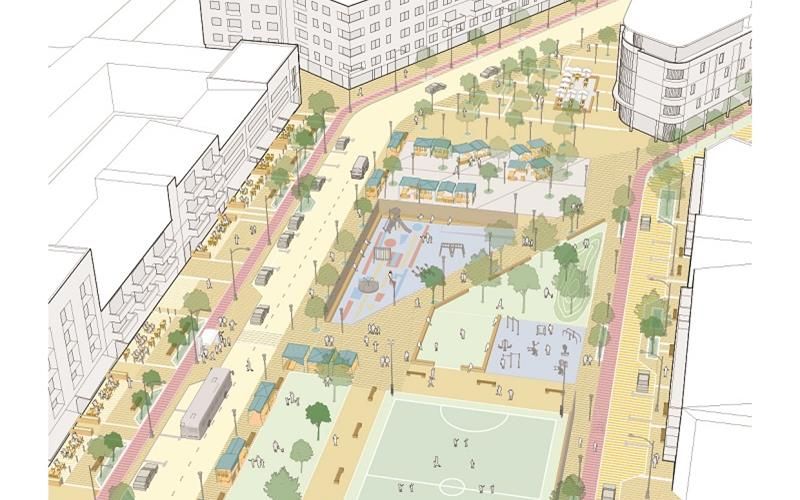A New Approach to Urban Design in Cape Town
In the face of rapid urbanization, cities across the globe are continuously evolving. Cape Town is no exception, as it recently embarked on a journey to revise its Urban Design Policy. This ambitious initiative aims to provide guidance for creating functional, attractive, safe, environmentally sustainable, economically viable, and socially equitable spaces. As the city gathers feedback from its residents, this article explores the principles and objectives of this revised policy and examines its potential impact on the urban landscape and its inhabitants.
Urban design, as a discipline, concentrates on the relationship between people, urban spaces, and the local environment. It plays a vital role in shaping the identity, functionality, and overall appeal of cities and towns. Good urban design cultivates a strong sense of place, enhances social interaction, and fosters the well-being of residents. Acknowledging this, Cape Town has developed a revised policy that underscores the significance of urban design in creating a thriving, diverse, and sustainable cityscape.
Key Principles and Objectives of the Revised Policy
The revised policy is grounded on several fundamental principles that inform its objectives and goals. One of the policy’s main features is the promotion of the greater public good. Urban development should be accessible to all and generate opportunities for social and economic development by carefully organizing activities, built forms, and open spaces.
The policy also highlights a holistic approach to city-making, prioritizing the performance of the urban environment as a whole. This entails creating spaces that contribute to Cape Town’s unique identity and context, shaped by its social, cultural, economic, and physical landscape. A crucial aspect of this is the transformation of the legacy of segregated development into a more equitable city through design.
Environmental sustainability is another central element of the revised policy. Development should align with sustainable development goals, safeguarding resources and fostering dignified urban environments. Furthermore, the policy encourages intensity, diversity, and adaptability in urban design, aiming to accommodate a wide range of users, amenities, and social groups.
The draft policy’s objectives further elaborate on these principles, emphasizing several key aspects of urban design. A comprehensible spatial structure that combines urban, natural, and green infrastructure is essential, along with the development of quality open spaces for social interaction, retreat, relaxation, and recreation. The policy also acknowledges the importance of increased safety, a sense of stability, and the overall well-being of communities.
Integrating People and Spaces for a Vibrant Urban Future
To better integrate people and spaces, the revised policy advocates designing streets and squares as multi-functional spaces that prioritize pedestrians, enhance access and connectivity, and facilitate various activities and social interaction. It also highlights the importance of urban development’s recognition and support of the informal sector and its role in the city.
Moreover, the policy emphasizes the need to respect, protect, and enhance the surrounding natural environment, acknowledging the invaluable role green open spaces play in the lives of city residents. Sensitively designed development should also consider the natural features, heritage structures, cultural practices, and memory of the immediate neighborhood.
Once approved, the revised policy will serve as a critical tool for the City’s Development Management Department in assessing development applications and informing city-led projects. It could also guide private improvement initiatives undertaken by residents, homeowners, and community organizations.
Cape Town’s revised Urban Design Policy is a testament to its commitment to fostering a resilient, spatially integrated, and inclusive city. By soliciting feedback from residents, the city demonstrates its dedication to collaboration and dialogue in shaping the future of urban spaces. As the policy evolves and is eventually implemented, it has the potential to transform Cape Town into a more vibrant, sustainable, and just city, benefiting all who call it home.
Residents are encouraged to read the revised policy and submit their comments by 30 October 2023 via email at Public.Participation@capetown.gov.za, online at www.capetown.gov.za/haveyoursay, or through hand delivery at Subcouncil Offices. Written comments can also be sent to Urban Planning and Design, Cape Town Civic Centre Tower Block, 16th Floor, 4 Bay Side, 12 Hertzog Boulevard, Foreshore, City of Cape Town, 8000.








